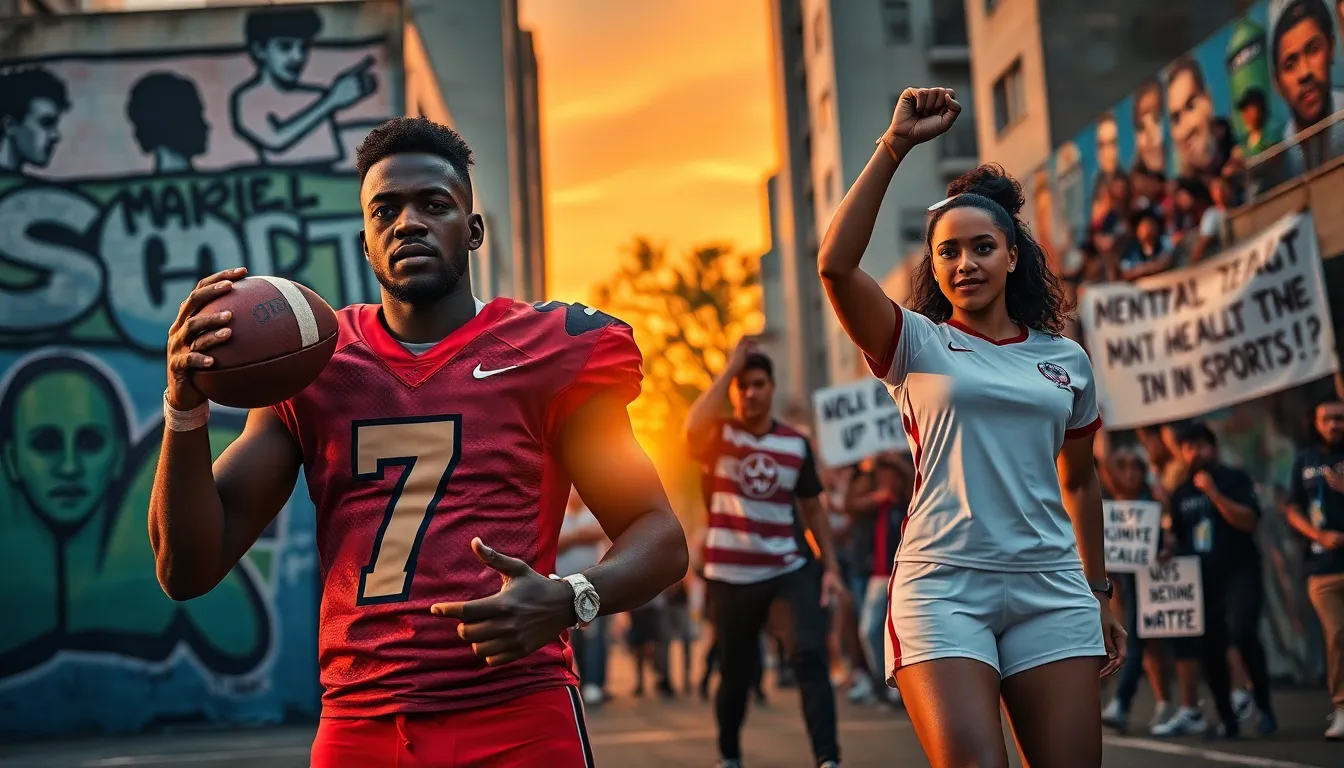In recent years, the intersection of sports and culture has gained unprecedented attention. As the world of athletics evolves, it increasingly reflects the values, trends, and challenges of society. This article explores how this intersection unfolds, particularly focusing on technology, social media, diversity, economic impact, and future trends. Join us as we investigate into the vibrant synergy between sports and the modern world.
Table of Contents
ToggleUnderstanding The Intersection Of Sports And Culture

Sports have always been a mirror to cultural shifts, reflecting societal values, movements, and changes. From the rise of women’s sports to the focus on mental health in athletics, this intersection is evolving more rapidly than ever. Athletes are not just competitors but also activists. For instance, icon athletes like Colin Kaepernick have leveraged their platforms to address social injustices, sparking conversations far beyond the playing fields. This engagement makes sports a relevant barometer for cultural attitudes, lifestyles, and even political views.
Impact Of Technology On Sports Engagement
The advent of technology has transformed how fans engage with sports. From live streaming options to augmented reality experiences, technology has enhanced the way audiences consume athletic contests. Platforms like ESPN+ and YouTube have made it easier for fans to watch games on-demand, while virtual reality technology offers immersive experiences that transport viewers courtside or on the field itself. Also, analytics play a pivotal role in how teams strategize, and fans geek out over stats. This technological integration not only enriches the viewing experience but also invites discussions surrounding data privacy and access.
The Role Of Social Media In Shaping Sports Narratives
Social media is reshaping sports narratives in real-time. Platforms like Twitter, Instagram, and TikTok are not just venues for sharing highlights: they are where narratives are crafted, challenged, and recast. Athletes use these tools to express their personalities and connect with fans directly, bypassing traditional media. This direct engagement can rally fans around causes, teams, or players. Also, the viral nature of social media can make or break reputations overnight, showcasing the power and peril of being in the spotlight.
Diversity And Inclusion In Modern Sports
Diversity and inclusion are at the forefront of conversations in sports. By welcoming a broader range of athletes, sports organizations not only enrich their talent pool but also resonate with a more diverse fanbase. Initiatives aiming to promote female athletes, LGBTQ+ representation, and minority participation have gained momentum, leading to more inclusive environments. Events like the Women’s World Cup and the NBA’s initiatives to celebrate LGBTQ+ pride showcase how sports can serve as platforms for equality and representation, echoing societal changes.
The Economic Influence Of Sports On Society
The economic impact of sports extends far beyond merchandise sales and ticket prices. Sports leagues contribute significantly to local economies, creating jobs and stimulating businesses. Major events like the Super Bowl or the Olympics lead to massive investments in infrastructure and tourism, showcasing sports as a catalyst for economic growth. Besides, sponsorship deals and partnerships with brands have become crucial revenue streams for teams and athletes alike. As sports continue to evolve, they will play an increasingly significant role in shaping economic landscapes and creating opportunities.
Future Trends In The Sports Landscape
Looking ahead, several trends are likely to shape the future of sports. Increased personalization in content delivery, virtual fan experiences, and data analytics are set to revolutionize engagement. Also, sustainability in sports is becoming a priority, as leagues and teams recognize their impact on the environment. This could lead to more eco-friendly sporting events and initiatives. Finally, as esports gain recognition, the boundaries between traditional sports and digital competitions may continue to blur, presenting new opportunities and challenges for the sports industry.
Conclusion
The intersection of sports and culture is vibrant and multifaceted. As technology and social media evolve, and conversations around diversity and economic impact take center stage, the landscape of sports will continue to change. Embracing these dynamics not only enriches the athletic experience but also drives social change, enhances community engagement, and redefines the role of athletes in society. The future holds exciting potential for this ever-evolving intersection as sports become an even more integral part of the cultural fabric.